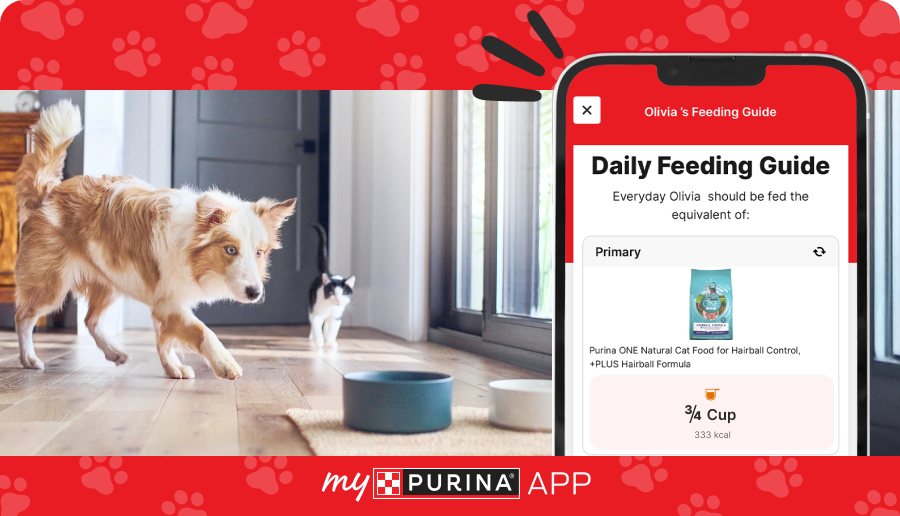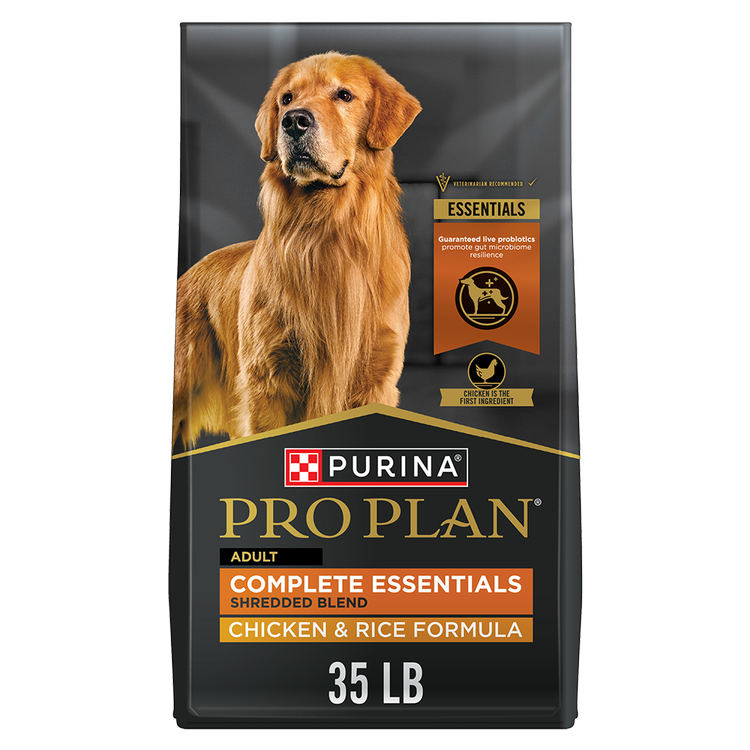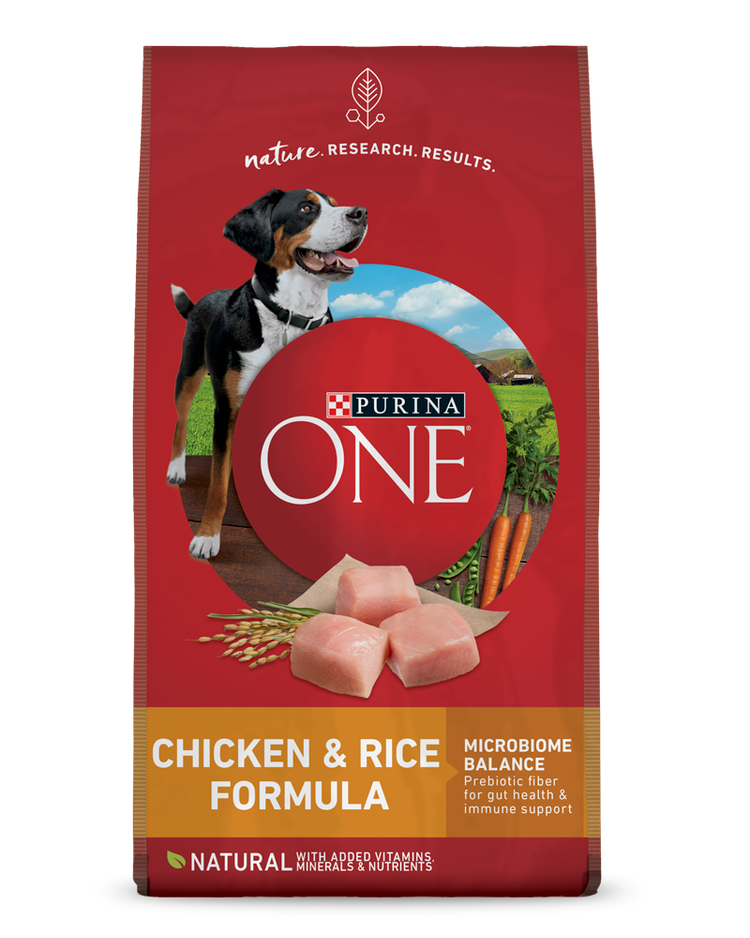Can Dogs Eat Nuts? A Guide to Safety


It depends on the type of nut. Some nuts pose little risk to dogs if given in small amounts as a special treat.
Others can be toxic or cause potential health problems. Even dog-friendly nuts can have adverse health effects if fed too often.
Dog treats and other dog-healthy snacks can account for up to 10 percent of a dog’s daily caloric intake. So, if you’re asking yourself, Can dogs have nuts?, the answer is yes, but only certain kinds of nuts and in small quantities.
From packaged snacks to select human foods, you can choose many healthy options to treat your pet. Purina nutritionist, Karina Carbo-Johnson MS shares her expertise on nuts as a complement to a balanced dog food formula.
Can Dogs Eat Nuts?
Dogs can eat most nuts as a special treat if shared in moderation. “Due to their high fat content, consuming nuts can lead to pancreatitis, which is an inflammation of the pancreas,” explains Carbo-Johnson. “This is a painful condition that causes vomiting and diarrhea.”
Nuts can also cause weight gain due to their high fat content and additional calories. Some nuts are toxic to dogs. It’s important to take caution and do a bit of research before sharing nuts with your dog.
Can Dogs Eat Peanuts?
Yes, dogs can eat non-salted, dry roasted (raw) peanuts. Peanuts, however, aren’t nuts at all but belong to the legume family. Nonetheless, if you want to feed a peanut or two to your dog, it is a safe treat.
Peanuts are an excellent source of protein and other nutrients like biotin, copper, phosphorus, manganese, niacin, thiamin, folate and vitamin E. Peanuts can promote skin and coat health, heart function, proper blood flow, brain health and healthy digestion.
Peanuts contain a high amount of sodium, which can be unhealthy to dogs if they get too much of it. Serve this snack option in tiny portions.
Can Dogs Have Peanut Butter?
If dogs can have a small number of peanuts, then they can also have peanut butter, right? Yes, but only peanut butter that does not contain xylitol.
“Yes, dogs can absolutely have peanut butter!” says Carbo-Johnson. “Peanut butter, however, is high in fat and calories and should be fed in moderation. If feeding peanut butter to your dog, be sure to read the label. Sometimes peanut butter may be sweetened with xylitol which can be dangerous for dogs and cause serious harm.”
Can Dogs Eat Cashews?
Yes. Though not the healthiest snack choice, cashews are non-toxic to dogs. Like other nuts, the high fat and high protein content can lead to serious health concerns if you give your dog too many.
Cashews contain healthy nutrients for dogs. It’s unlikely, however, they would have an impact on their overall health, since cashews should only be given to dogs in minimal quantities.
Cashews contain antioxidants, omega-3 fatty acids, vitamins C and K, calcium, magnesium and phosphorus. These nutrients can help manage skin and coat health, cellular health, heart health, free radical neutralization and muscle tissue development.
Can Dogs Eat Pistachios?
Generally, no. There are many risks involved in giving your dog pistachios even though the unshelled pistachio nut itself is not toxic to dogs. Technically, you can share a minimal amount of an unshelled, unsalted pistachio with your dog, but not without risks.
Like many nuts, pistachios can be harmful to dogs due to their high fat and calorie content. Overindulging on pistachios and other high-fat foods can lead to obesity, gastrointestinal disorders and pancreatitis. Pistachio shells and pistachios themselves are difficult for dogs to digest and can cause an intestinal blockage.
Dogs can also experience what’s known as pistachio poisoning caused by an Aspergillus mold found in pistachios. This mold contains aflatoxins, which can cause loss of appetite, lethargy, vomiting, jaundice and even liver failure.
What Nuts Are Dangerous to Dogs?
Can Dogs Eat Macadamia Nuts?
No, you should never give macadamia nuts to dogs. Although researchers have yet to determine why macadamia nuts give dogs such an adverse reaction, be aware: they are highly toxic.
Macadamia nut poisoning symptoms:
- Muscle weakness, especially in the hind legs
- Lethargy
- Loss of coordination
- Diarrhea
- Tremors
- Vomiting
- Fever
Can Dogs Eat Walnuts?
No. Like pistachios, walnuts are susceptible to carrying mold. Moldy walnuts could be fertile breeding ground for tremorgenic mycotoxins, which can be fatal to dogs.
Black walnuts are especially dangerous to dogs. English walnuts pose less of a risk, but these hard nuts are difficult for dogs to digest and may cause internal blockages.
Walnut poisoning symptoms:
- Excessive salivation
- Fatigue
- Vomiting
- Tremors
- Fever
- Seizures
- Abdominal pain
- Jaundice
- Liver damage
Can Dogs Eat Almonds?
No, dogs should not eat almonds. While almonds are not toxic to dogs, they are a choking hazard for dogs, especially smaller breeds. Aside from a blocked windpipe or esophagus, almonds can also potentially cause intestinal blockage.
Side effects of almonds on your dog:
- Lethargy
- Vomiting
- Gas
- Loss of appetite
- Discomfort
Can Dogs Eat Almond Butter?
While almonds are not recommended for dogs, almond butter in small amounts can be a healthy and safe alternative. Just be sure it doesn’t contain xylitol. Almond butter is an excellent way for your dog to get an infusion of vitamin E in the form of tocopherols and tocotrienols.
Almond butter also contains vitamin B, bioflavonoids, copper, magnesium, manganese, zinc and omega-3 fatty acids.
If you believe your dog has ingested any of these dangerous nuts, call your veterinarian or the ASPCA Animal Poison Control Center (888)426-4435 immediately.
Discover more about dog nutrition and get tips from our experts on our Pet Expertise page.

Form the Perfect Feeding Plan
Related articles

Find Your Pet’s Perfect Food
Use our Pet Food Finder to get a custom recommendation from Purina Nutritionists.





